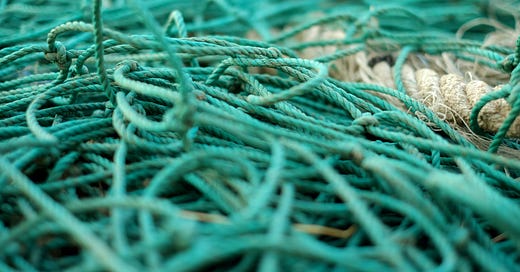Several months ago I wrote about the Valdo Calocane murder case, which I had read about in the Guardian; I reported then that it made my heart sink. So when I read this opinion piece about the case, in the same news outlet, I expected the same. But this time it didn't make my heart sink; it made my stomach turn.
Jeremy Walker writes as a retired psychiatrist who rose to the top of his profession (“Jeremy Walker spent 25 years working in and managing NHS community mental health teams and nine years as an inspector in the Mental Health Act Commission (now part of the CQC). He also chaired panels reviewing the detention of patients under the Mental Health Act for 14 years.” (Guardian opinion, 20 August 2024)
I was disgusted by the overall message he delivered: the officious and badgering tone; the smug, instituitionalised certainty that he alone knows what is the right form of care for someone in distress (“rigorous treatment and management” apparently); the hammering, detached repetition of clinical jargon; the patronising accusation that Valdo Calocane was engaging in “elusiveness.” Is it any wonder that people experiencing extreme mental states try to evade this cold and clinical and frankly threatening approach?
For those individuals who slip through the NHS net (and let's take a moment to consider why that metaphor applies so aptly – who actually wishes to be caught in a net?) Walker places the onus on them; they are “determined to avoid contact with services out of a desperation to preserve the identity that is familiar to them and makes them feel safe.” He doesn't stop to consider that they may be determined to avoid contact with services because those so-called services are often alienating, brutal, coercive and restrictive. Surely someone who is already feeling frightened, desperate and unsafe will resist? Wouldn't you?
The Valdo Calocane case is indeed disturbing and tragic - but the type of discourse offered here by Walker only exacerbates prejudice, fear and stigmatisation of those who experience madness.
Take for example the repeated use of the word “presenting” which is medical jargon for what one observes in a patient's body or behaviour. It is intended to convey objectivity, but in doing so it establishes a detached, compassionless barrier between the person who is observing and the person who is being observed. It also belies the fact that humans and human interactions are never, ever objective.
And please stop equating this observation and judgment with 'caring.' There may of course be service-providers who demonstrate care for the people they serve, but there are plenty who don't. I wonder if 'caring profession' is in fact an oxymoron. Because caring involves human connection, it involves a commitment to another's welfare. Professionals are there because they are trained and paid to do so, whether they treat others with care or not.
Finally I take exception to Walker's allusion to Valdo Calocane's “untreated psychotic illness” and his overall assumption that psychosis belongs in the medical realm. The medical model upheld by psychiatry is deeply flawed and inadequate; there is no physical evidence for the “illness” he calls paranoid schizophrenia.
I am reminded of a presentation by Professor John Read which pointed out the circular argument that is tacitly accepted as 'evidence' :
Q: why is the person behaving like this?
A: because they have schizophrenia.
Q: why do they have schizophrenia?
A: because they are behaving like this.
So once again, the mainstream media platforms psychiatry as the status quo. This only increases my resolve to put my energy behind the mad movement, which calls for society to reframe its understanding of and response to extreme mental states. Rather than the 'capture-and-contain' approach that is promoted by Walker, what if we tried a 'respect-and-listen' approach? Yes: to madness. Yes: to challenging behaviour. Yes: to the desperate and frightened. Who knows: perhaps listening and responding gently rather than hounding with the threat of forced treatment would have led to a different outcome for Valdo Calocane. Perhaps not. But perhaps.
Photo by Eric Barbeau on Unsplash






Well said Julia!